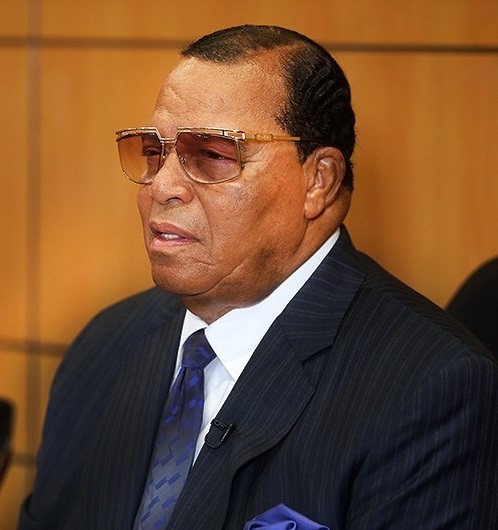Certain American liberal feminists seem to be in thrall to Louis Farrakhan, the fiery Nation of Islam leader who rarely misses an opportunity to excoriate Jews.
At the annual Saviours’ Day event in Chicago late last month, the African American demagogue spewed brimstone and fire as he delivered one of his trademark blistering speeches. During the course of his diatribe, he singled out “powerful Jews” as his “enemy” and charged that “the Jews were responsible for all this filth and degenerate behavior” coming out of the Hollywood film industry.
Tamika Mallory, the co-president of Women’s March, a human rights organization, was in the audience as Farrakhan, an arch anti-feminist, lambasted his enemies. According to reports, she admires Farrakhan, has posted photographs of herself and him, and has been going to Nation of Islam events for the past 30 years.

When Women’s March supporters asked Mallory to denounce Farrakhan’s antisemitic rhetoric, she demurred, pointing out she already had condemned antisemitism in general terms. She then proceeded to skewer her critics.
Mallory’s refusal to distance herself from Farrakhan — who has defiled Judaism as a “gutter religion” and called Adolf Hitler “a very great man” — touched off a heated debate inside Women’s March. In the end, Women’s March issued a statement mildly critical of Farrakhan, saying that his antisemitic — and anti-LGBTQ — comments were not “aligned” with its principles. But Women’s March did not offer a full-throated critique of Farrakhan.

Shortly afterwards, Mallory wrote an essay during which she defended her association with him: “I attend meetings with police and legislator — the very folks so much of my protest has been directed towards. I’ve worked in prisons as well as with present and former gang members. It is impossible for me to agree with every statement or share every viewpoint of the many people who I have worked with or will work with in the future.”
Mallory may have been influenced by Carmen Perez, one of the founders of Women’s March. In an implicit reference to Farrakhan, Perez said, “People need to understand the significant contributions that these individuals have made to Black and Brown people. There are no perfect leaders.”
That is not the point, of course.

Mallory and her associates, including Palestinian American activist Linda Sarsour, need to disassociate themselves from Farrakhan, whose brand of racial and religious hatred smacks of nothing less than neo-Nazism.
Mallory and company do not appear to realize that their unwillingness to part company with Farrakhan will affect the credibility of Women’s March and probably cost it dearly in terms of membership and donations.
“The refusal by Women’s March leaders to condemn Farrakhan in the strongest of terms or, frankly, in any terms whatsoever, is proof that intersectional feminism does not yet take antisemitism seriously,” wrote Emma Teitel in the Toronto Star. “Antisemitism, in the eyes of those at the helm of the Women’s March, is less objectionable and less cause for concern than Islamophobia and anti-Black racism.
Writing in the New York Daily News recently, Susan Shapiro observed:
“Imagine if I, a liberal white New Yorker, posted social media pictures with my arm around the KKK-loving David Duke, calling him a great man as he proclaimed that black people were degenerates responsible for the supposedly filthy behavior that caused transsexuality. I would be fired, ridiculed and called out by every left-winger in my life, as well as all the civilized people I knew on the right. Yet Women’s March Co-President Tamika Mallory, a liberal black New Yorker, has done the equivalent, repeatedly.”
Time’s up, Mallory.
She and her friends cannot campaign for social justice while associating with an unrepentant racist like Farrakhan.
